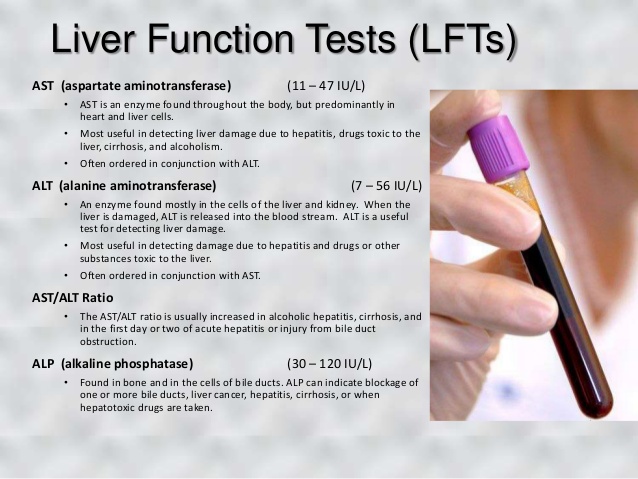Liver function tests help determine the health of your liver by measuring the levels of proteins, liver enzymes, or bilirubin in your blood.
A liver function test is often given in the following situations: to screen for liver infections, such as hepatitis C
to monitor the side effects of certain medications known to affect the liver
if you already have a liver disease, to monitor the disease and how well a particular treatment is working
to measure the degree of scarring (cirrhosis) on the liver
if you’re experiencing the symptoms of a liver disorder
if you’re planning on becoming pregnant
Many tests can be performed on the liver, but most of them don’t measure the overall function of the liver. Commonly used tests to check liver function are the alanine transaminase (ALT), aspartate aminotransferase (AST), alkaline phosphatase (ALP), albumin, and bilirubin tests. The ALT and AST tests measure enzymes that your liver releases in response to damage or disease. The albumin and bilirubin tests measure how well the liver creates albumin, a protein, and how well it disposes of bilirubin, a waste product of the blood.
Having abnormal results on any of the liver function tests doesn’t necessarily mean you have liver disease or damage. Talk to your doctor about the results of your liver function test.



 Contact Us
Contact Us






 Hospitals
Hospitals
 Doctors
Doctors
 Diagnostic
Diagnostic
 Pharmacy
Pharmacy
 Health Tips
Health Tips
 Blog
Blog

























Comments